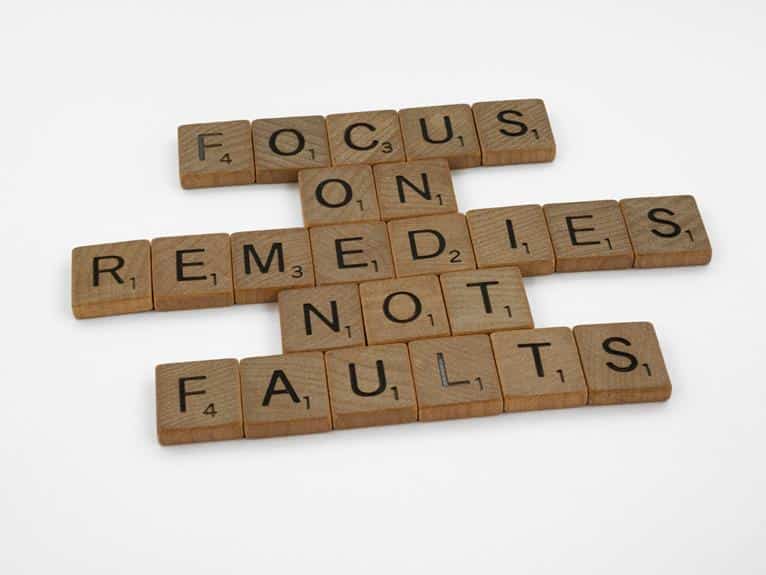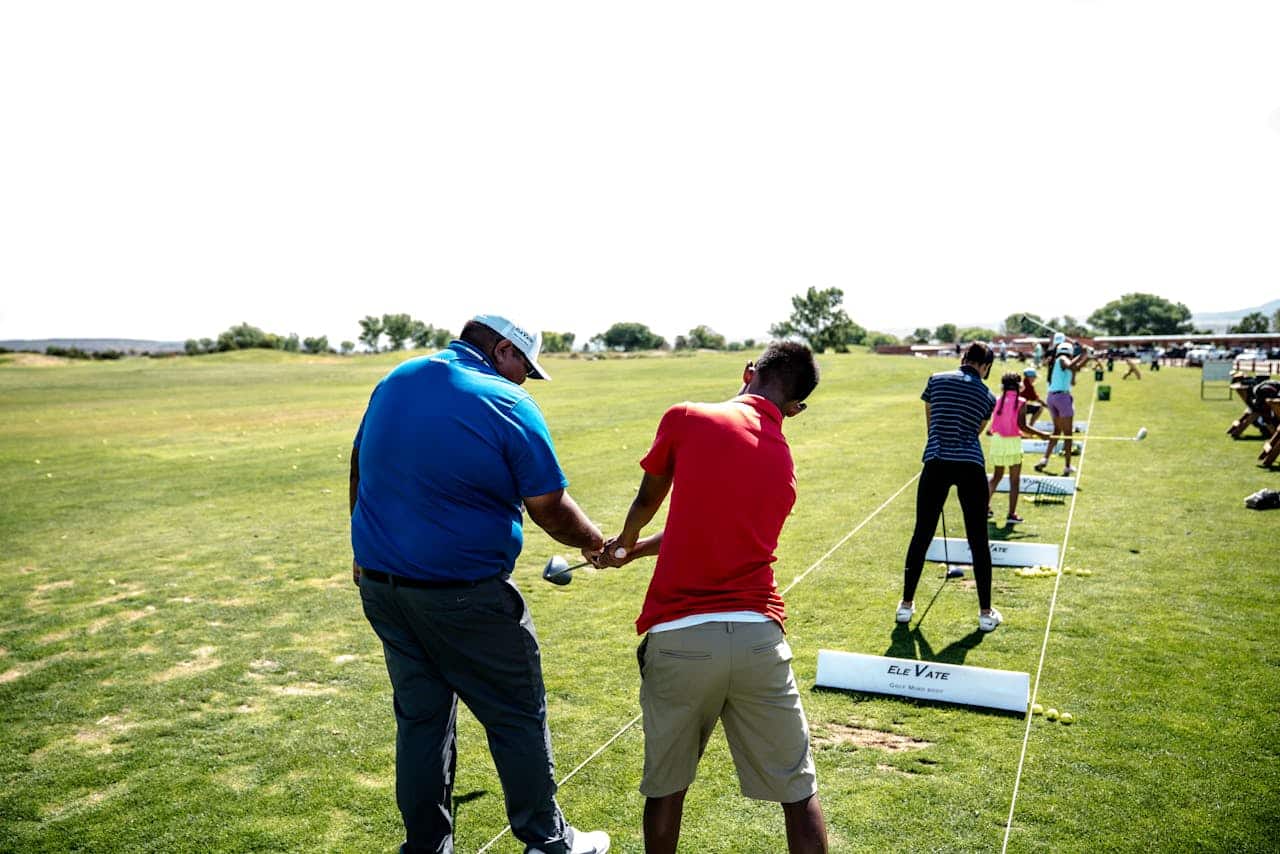
It's interesting how you and your friend both decided to take up golf around the same time, yet your games seem to be on different trajectories. You might be wondering what separates the average player from those who consistently lower their scores. Perhaps it's not just talent but a blend of focused practice, technique refinement, and mental strategies that make the difference. As you think about your own game, consider what specific areas could use improvement and how a targeted approach can lead to noticeable progress on the course.
Key Takeaways
- Establish a consistent practice routine with specific goals and dedicated time slots to enhance skill development.
- Focus on refining your swing technique through proper grip, body alignment, and weight transfer for better performance.
- Develop mental resilience by utilizing visualization, positive affirmations, and a pre-shot routine to reduce anxiety and boost confidence.
- Improve physical fitness with strength training, flexibility exercises, and cardiovascular activities to enhance overall performance and prevent injuries.
Establishing a Consistent Practice Routine
To truly improve your golf game, you need to establish a consistent practice routine that aligns with your goals.
Start by setting specific, achievable goals. Whether it's lowering your handicap or mastering a particular shot, clear objectives guide your practice.
Next, manage your time wisely; carve out dedicated practice slots each week to guarantee you stay committed.
Incorporate practice variety into your sessions to keep things engaging. Work on different aspects of your game, like putting, driving, and chipping, to develop a well-rounded skill set. This diversity not only prevents boredom but also enhances overall performance.
Consider finding accountability partners who share your passion for golf. Regularly practicing with someone else can motivate you to stay on track and push each other to improve.
Lastly, implement progress tracking to see how far you've come. Keep a journal or use apps to record your practice sessions and note improvements. This will help you identify areas needing more focus and celebrate your achievements along the way.
Enhancing Your Swing Technique
Focusing on key elements of your swing technique can markedly elevate your overall performance on the course.
Start with grip pressure; it's essential to find a balance—too tight can restrict your swing, while too loose might cause a lack of control.
Next, pay attention to swing tempo. A smooth, rhythmic tempo guarantees consistency and helps you maintain focus throughout your swing.
Body alignment is another significant aspect. Make certain your feet, hips, and shoulders are parallel to your target line, which sets you up for a more accurate shot.
As you initiate your swing, practice proper weight transfer; shifting your weight from your back foot to your front foot during the downswing generates power and stability.
Developing Mental Resilience
Mental resilience is essential for golfers, enabling you to stay composed under pressure and maintain focus throughout your game. Developing this mental strength involves various techniques that you can easily integrate into your practice routine. Here are some strategies to help you build your mental resilience:
Visualization techniques: Picture yourself executing each shot perfectly before you take it. This mental imagery can boost your confidence.
Positive affirmations: Use phrases like 'I am a skilled golfer' to reinforce your self-belief. Repeat these affirmations regularly.
Stress management: Learn to identify stress triggers and develop coping strategies, such as deep breathing or mindfulness practices, to stay calm on the course.
Pre-shot routine: Establish a consistent routine before each shot to create a sense of familiarity and control, helping to reduce anxiety.
Focus exercises: Practice concentrating on a single point or thought during your swings to improve your overall focus during the game.
Improving Physical Fitness
Improving your physical fitness can greatly enhance your golf performance by boosting your strength, flexibility, and endurance on the course.
Start with strength training; it's essential for building the power needed in your swings. Focus on exercises that target your core, legs, and upper body to create a solid foundation.
Incorporate flexibility exercises into your routine to improve your range of motion. Stretching regularly can help you achieve a full swing and reduce the risk of injury.
Don't forget about cardiovascular fitness; walking the course or engaging in aerobic activities can enhance your stamina, allowing you to maintain peak performance throughout your rounds.
A well-structured nutrition plan is equally important. Eating the right foods fuels your body and supports recovery, so prioritize whole grains, lean proteins, and plenty of fruits and vegetables. Staying hydrated is also essential, especially during long games.
Lastly, focus on injury prevention. Warm up before playing, and listen to your body. If something doesn't feel right, don't push through the pain.
Utilising Technology and Tools
Leveraging technology and tools can take your golf game to the next level by providing valuable insights and enhancing your practice sessions. With the right gadgets, you can analyze your performance like never before, helping you identify areas for improvement.
Here are some essential tools to evaluate:
- Launch Monitors: These devices track your ball speed, launch angle, and spin rate, giving you critical data to refine your swing.
- Swing Analyzers: Attach these to your club or use standalone devices to receive in-depth analysis of your swing mechanics, helping you make necessary adjustments.
- GPS Devices: Keep your game on track by using GPS to measure distances accurately on the course, allowing for better club selection.
- Virtual Coaching: Explore online coaching sessions that provide personalized feedback and drills based on your recorded swings.
Conclusion
By focusing on these key areas—practice, technique, mental strength, fitness, and technology—you can transform your golf game.
For example, consider a hypothetical golfer named Alex, who dedicated just three hours a week to practice with a coach.
After six months, Alex improved their handicap by five strokes, thanks to refined swing mechanics and enhanced mental focus.
Commit to your routine, embrace the challenge, and watch your performance soar on the course!




